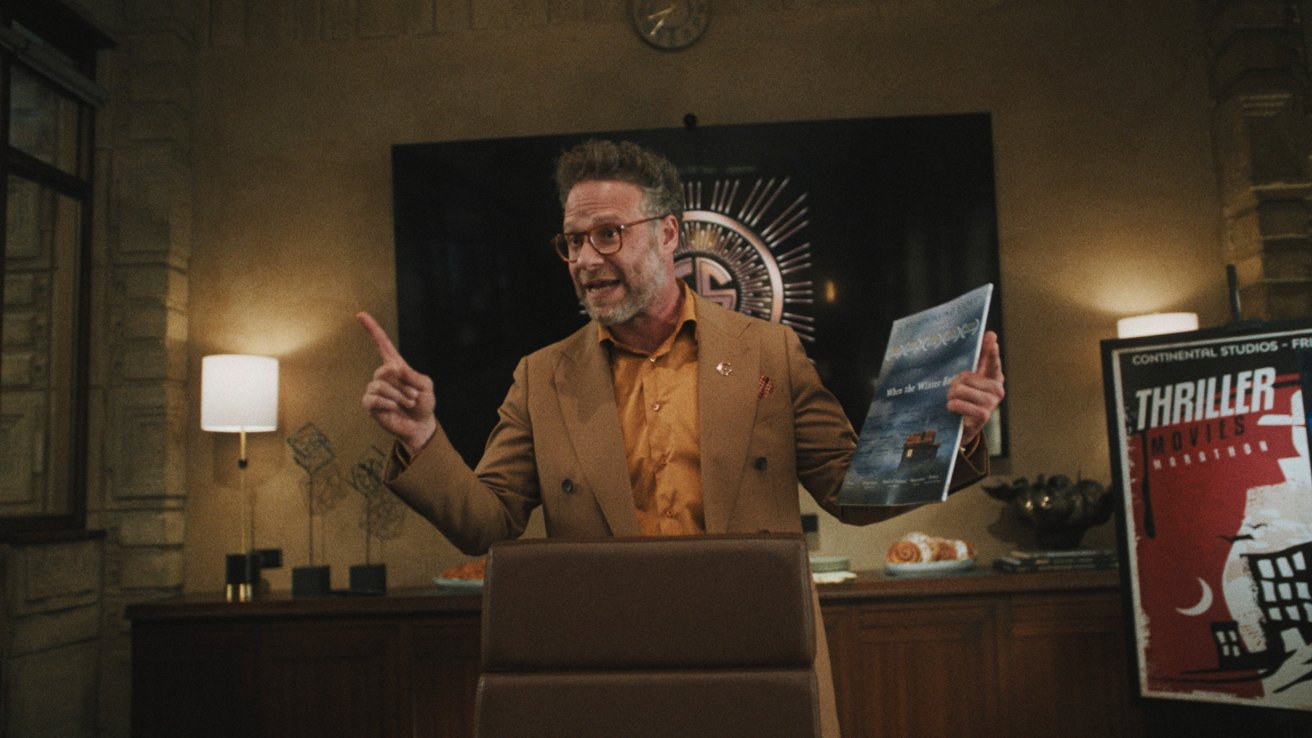Seth Rogen has a new show about the business of Hollywood called "The Studio," and it may be Apple TV+'s next "Severance," with the show receiving stratospheric reviews.
The first two episodes of "The Studio" which skewers the behind-the-scenes nature of working in Hollywood, has received almost universal acclaim from critics, professional and amateur alike. As of March 27, Rotten Tomatoes reports the show at 96% "Certified Fresh," with 22 out of 23 "Top Critics" reviews considering it "Fresh" and only one listed as "Rotten" on the "Tomatometer."
While critics are mostly raving about it, audiences take a slightly more muted approach. The site's "Popcornmeter," which uses from reviews from audiences, gives it an average score of 3.7 out of 5 stars, with 69% of reviews rating it at 3.5 stars or above.
The scores are higher than anything else in Apple's stable, other than current hit "Severance." Apple's "Severance," which just concluded its second season has critics raving, with the Tomatometer giving an average of 96% fresh. The average for the "Popcornmeter" is 78%.
Seth Rogen's send-up
The show has star and co-creator Seth Rogen playing Matt Remick, the new head of a struggling Continental Studios. In the show, Matt and his team fight with each other and deal with narcissistic artists, as well as corporate bosses, as they try to make great films.
In an interview with Variety, Rogen and Emmy Award nominee Evan Goldberg had to pick the brains of studio heads, agents, and everyone in between. They also relied on Rogen's own path through the Hollywood machine, which included his work at Sony and the hacking fiasco of The Interview.
Insisting that many subjects agreed that they viewed themselves as artists, Rogen said that the nature of art became a debate throughout the show's filming. The creative ownership over their moves was "very eye-opening," Rogen told Variety.
The studio executives also had to deal with self-preservation, to cling onto their jobs at every moment. They had to deal with the issue of securing ownership of successful projects, while also distancing themselves from failures.
A lot of the comedy from key moments apparently came from Rogen's own frustrations with the industry. In one example, where Rogen's character is charged with making a movie based on Kool-Aid, it was apparently inspired being "handcuffed" with intellectual property restrictions and other studio mandates during production of The Green Hornet.
Protective Oners and doubting notes
Unusually for a production, a creative choice actually helped deal with another frequent issue: feedback.
The show frequently uses "oners," a term referring to long and uninterrupted shots with a single camera, leading to scenes that can run for more than ten minutes without any cuts. It was a change from Rogen's typical process, where two cameras covered a conversation with a lot of improvisation, and bits were edited out later.
Going with a series of very long shots also effectively nullified any feedback that Apple offered on the show. Due to the length of the scenes, Rogen explained that requests to remove or change lines couldn't be complied with without ruining the shot.
Apple was also reportedly concerned in pre-production about the script. The company was reportedly skeptical about the sheer number of ambitious cameos that it required.
"They said early on, You will never be able to get all the cameos you need to make this show.' They could not have said it more definitively than that," Rogen insists. "That's the moment we were like, Oh, we have to prove these motherfuckers wrong.'"
Despite being urged to write scripts that didn't rely on specific major celebrities taking part, the show still managed to secure almost all of the desired celebrities, including Martin Scorsese.
While the show certainly pokes Hollywood's film industry in the eye, Rogen insists he isn't cynical about it all. He insists that studios could do better by taking more risk, but the industry is geared up to be risk-averse.
He likened it to the production of SuperBad which was bought and made with relative ease at the time.
"If that movie existed now, we would have to get the director and the entire cast attached beforehand," Rogen believes.
 Malcolm Owen
Malcolm Owen







-m.jpg)






 Brian Patterson
Brian Patterson
 Charles Martin
Charles Martin



 William Gallagher
William Gallagher
 Christine McKee
Christine McKee
 Marko Zivkovic
Marko Zivkovic








3 Comments
Robert Altman's 'The Player' was likely part of the inspiration for this show.
I agree that The Player (1992) was a likely inspiration for this show. In fact, at the beginning of The Player there is a 'oner' during which Fred Ward's character describes a 'oner' to another character (my memory is hazy but I think it was The Sheltering Sky by Bernardo Bertolucci).
The Player was also full of cameos and Hollywood self-referential to the core. Great movie (97% Tomatometer, 84% Popcornmeter so a much higher audience score than The Studio).
Yeah this show is great so far, very entertaining.